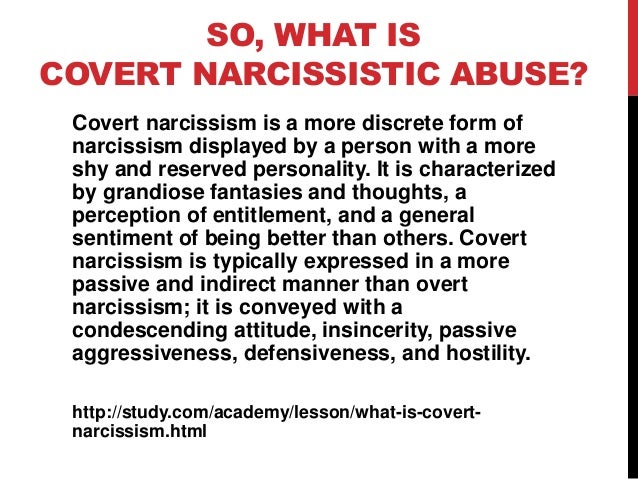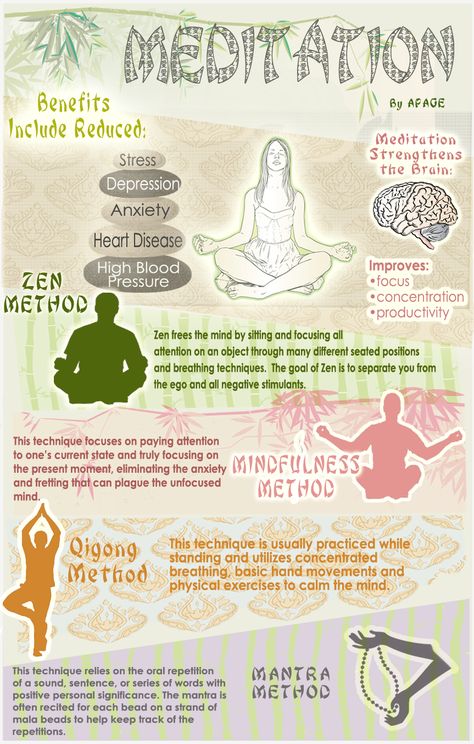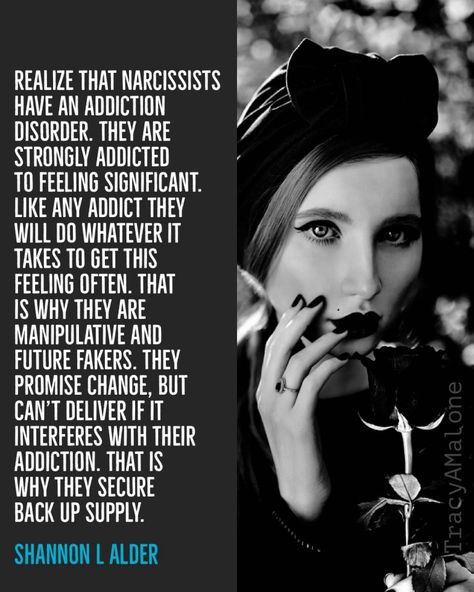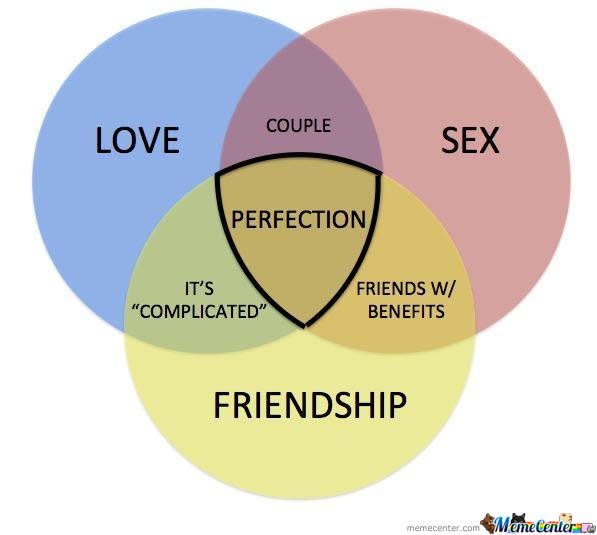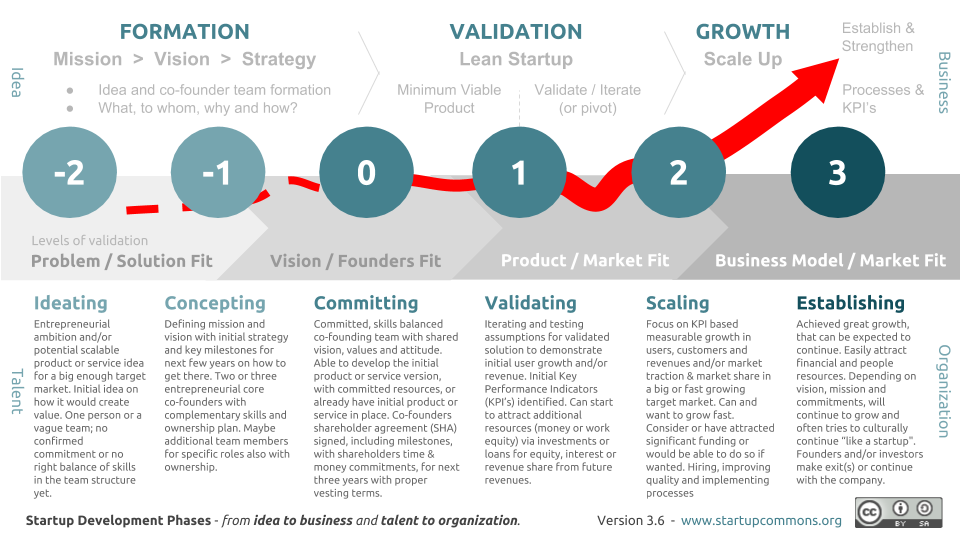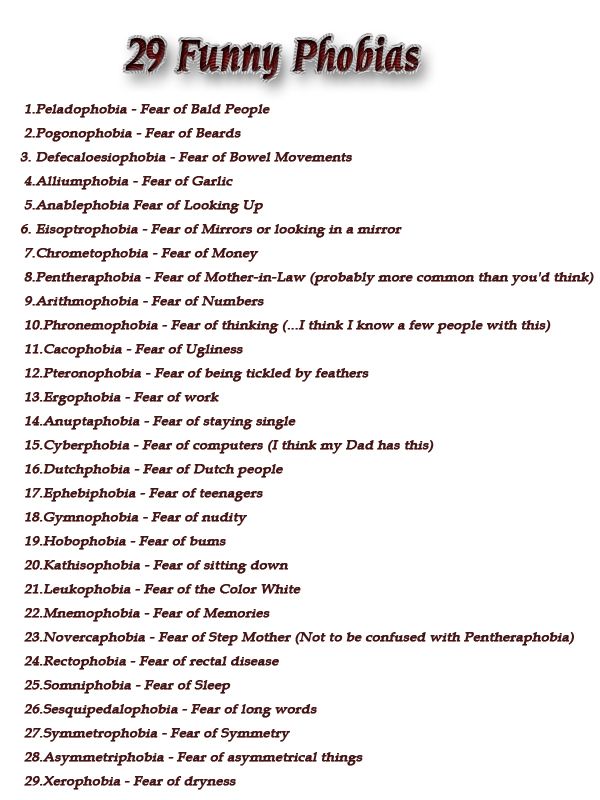Signs of a narcissistic spouse
Signs You’re Married To A Narcissist—And What To Do About It
It’s not that there are no red flags that signal narcissism during dating, it’s that many of the tell-tale traits of narcissism become more pronounced after getting hitched.
“With marriage—and parenthood—there’s more interdependence, more demands,” says Ramani Durvasula, Ph.D., author of Should I Stay or Should I Go: How to Survive a Relationship with a Narcissist. “And that often doesn’t play well with an egocentric narcissist.”
Could your dearly beloved, in fact, be a narcissist? Here are some signs to clue you in.
Signs You Married A NarcissistSome of the same things that attracted you to your partner, such as confidence, assertiveness, and a big personality, may actually be the same characteristics that fuel their narcissism. Not all of the signs are obvious either, and some may have you wondering if you're the problem, not them.
#1: You Feel IsolatedDrifting apart from some friends after a big life change (marriage! babies!) happens to everyone, but if your life is now rife with severed ties, it’s time to pause and reassess.
“After marriage, narcissists often isolate their spouses from their friends through a slow and methodical process,” says Cristina Dorazio, PhD, a psychologist who provides both individual and couples therapy in New York City. Your significant other may go out of his or her way, for instance, to make an argument as to why they don't like your friend. (Bad-mouthing others is a very common narcissistic behavior, notes research in the Journal of Personality and Social Psychology.)
“They can be very good at this, even making you start to question why you were ever friends in the first place,” says Dorazio. This is especially true for friends who are “on to” your narcissist spouse’s behavior.
#2: You're Being GaslightedWhy can’t you take a joke? I never said that! Why are you always so angry? You’re being paranoid. Why can’t you let go of the past? No one will ever love you like I do. These questions and phrases can be typical of narcissists.
“This is all part of gaslighting,” says Durvasula. Here, an individual uses words or behavior to cause you to doubt and confuse your own reality. “I have never seen a narcissistic marriage in which gaslighting did not happen,” says Durvasula.
#3: Praise Looks Like ThisBefore you were married, there’s a good chance your now-spouse heaped on the flattery. (Narcissists know how to woo.) After the I Dos, however, that often shifts dramatically. Now, the compliments may only arrive when you are in the company of others.
“This allows the narcissist to look like a great husband in front of other people and contradicts any complaints you might share about him later,” says Dorazio.
Another flattery twist: While compliments directed to you might fizzle, a narcissist might instead lay it on thick to others in your orbit. “They do this to feed your insecurity,” says Dorazio.
#4: It Feels Like Your Partner Is Trying To Make You JealousBeyond praising others, a narcissist may talk glowingly about an ex or flirt with someone right in front of you. This is no accident or innocent misstep, but a strategic move designed to make you feel jealous, according to a 2017 report in the journal Personality and Individual Differences. Beyond stoking your own insecurity, researchers note that narcissists do this in order to wield control and/or to buoy their self-esteem.
This is no accident or innocent misstep, but a strategic move designed to make you feel jealous, according to a 2017 report in the journal Personality and Individual Differences. Beyond stoking your own insecurity, researchers note that narcissists do this in order to wield control and/or to buoy their self-esteem.
Jealousy is not an uncommon reaction when a baby joins a narcissist’s family, says Suzanne Degges-White, PhD, professor and chair of the department of counseling and higher education at Northern Illinois University in DeKalb: “Narcissistic partners can become resentful of the time you invest in child care, so he might begin to insist that you focus more attention on the marriage than the child.”
This, however, is not universal. Some narcissists, in fact, dramatically shift their focus solely on the baby. “These narcissists may see the child as an extension of themselves, so they co-opt the child, leaving you on the sidelines in terms of attention and family involvement,” says Degges-White.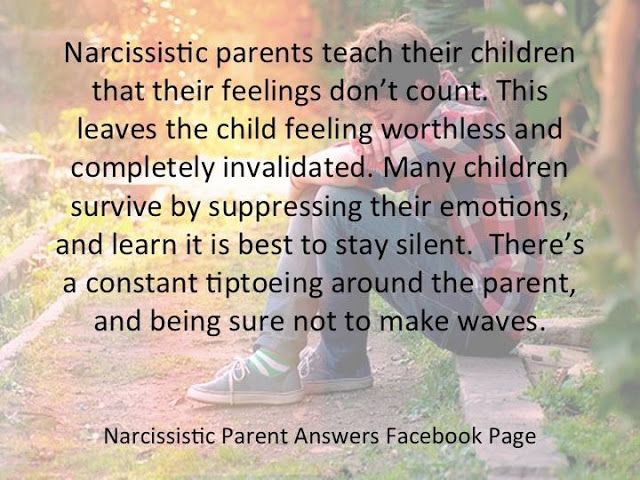
“Narcissists often blame any perceived ‘bad’ behavior of their children on their spouse’s lack of parenting skills,” says Dorazio. Adding insult to injury, narcissists are often not as involved as their spouse in raising children in the first place—and they often use their career as an excuse to bow out of responsibilities. “In fact, if the narcissistic husband is the sole provider or earns more money in the marriage, they’ll often use that as a counterargument to not taking care of the children,” says Dorazio.
#7: They 'Confide' In Your FamilyNarcissists are, by definition, self-involved folks who lack empathy. So it’s no shock that you’d likely turn to your support system to complain and commiserate about this type of behavior. The catch? Knowing very well that you’d likely do this, a narcissist may talk to your family and friends before
you get the chance to. “A narcissist may say he’s concerned that you’re a bit ‘off’ lately,” says Dorazio.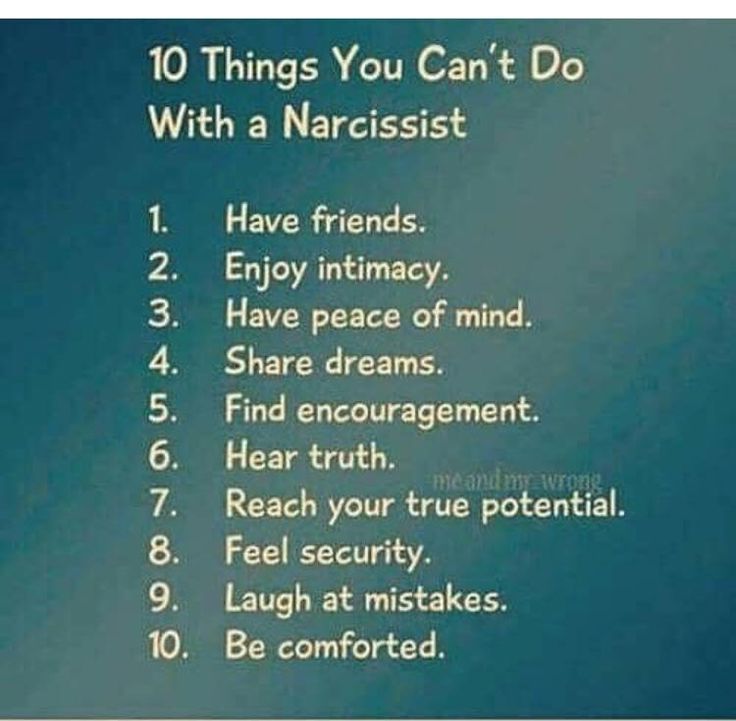 “Because, if he confides about your problematic behavior first, he takes the heat off himself.”
“Because, if he confides about your problematic behavior first, he takes the heat off himself.”
When dating, you were likely overwhelmed with signs of adoration, like constant love notes, flower deliveries and surprise gifts. (This is what it feels like to be swept off your feet, you thought!) After marriage, however—poof—it all stops. “You’ve been conquered through marriage, so courting with ‘love bombs’ is no longer needed,” says Dorazio, noting that these extravagant displays can often return, typically when your spouse wants something from you.
“For example, if you’re surprised with a trip, you may be expected to show your gratitude in a very specific way, like dressing a certain way while on the trip or being available for sex whenever your spouse wants,” says Dorazio.
#9: They Admit It!A study of more than 2,200 people found it’s actually pretty easy to ID narcissists. You simply need to ask them the following: To what extent do you agree with this statement: "I am a narcissist.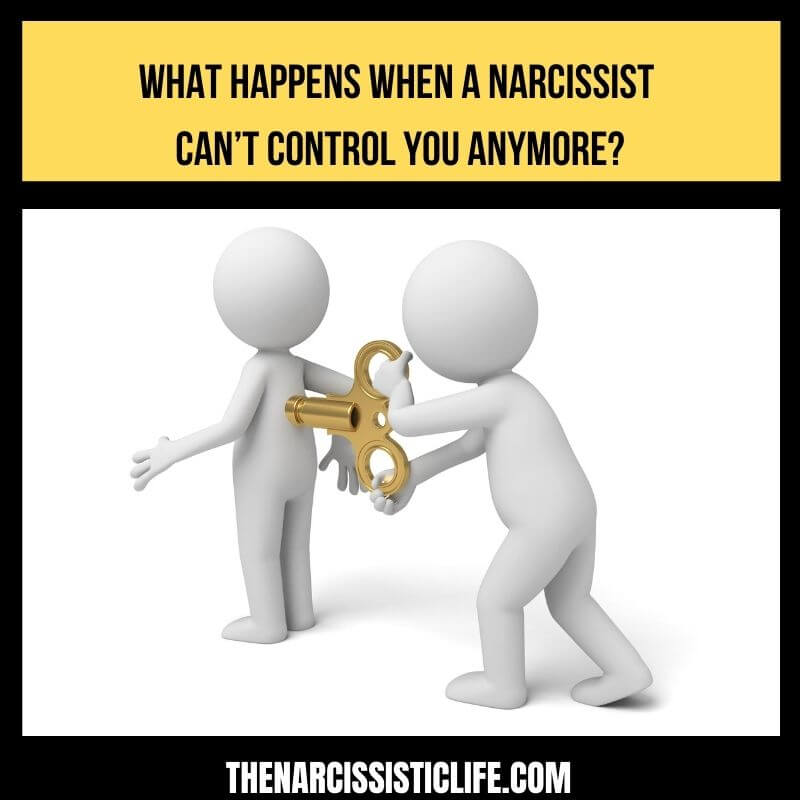 " And you need to define “narcissist” at the same time, noting that it means egotistical, self-focused and vain. Researchers relayed that the reason this works is that those who are narcissists can appear to be proud of it.
" And you need to define “narcissist” at the same time, noting that it means egotistical, self-focused and vain. Researchers relayed that the reason this works is that those who are narcissists can appear to be proud of it.
“Narcissists typically don’t perceive their behavior as a problem. Instead, they feel that they’re perfectly fine and others have problems,” notes Degges-White. That doesn’t mean that there’s no hope. Here are some tips on communicating with a narcissistic partner.
Argue this way. Narcissists cannot be wrong, making arguing with them close to impossible. “So it’s smart to find a way to convince your partner that the ‘right answer’ or the ‘right thing to do’ was their idea,” says Degges-White. “This way, you can compliment them on what a great idea they had to solve the issue.”
Ignore insults. Insults are bait. A narcissist wants you to take them, react to them, and engage in a fight.
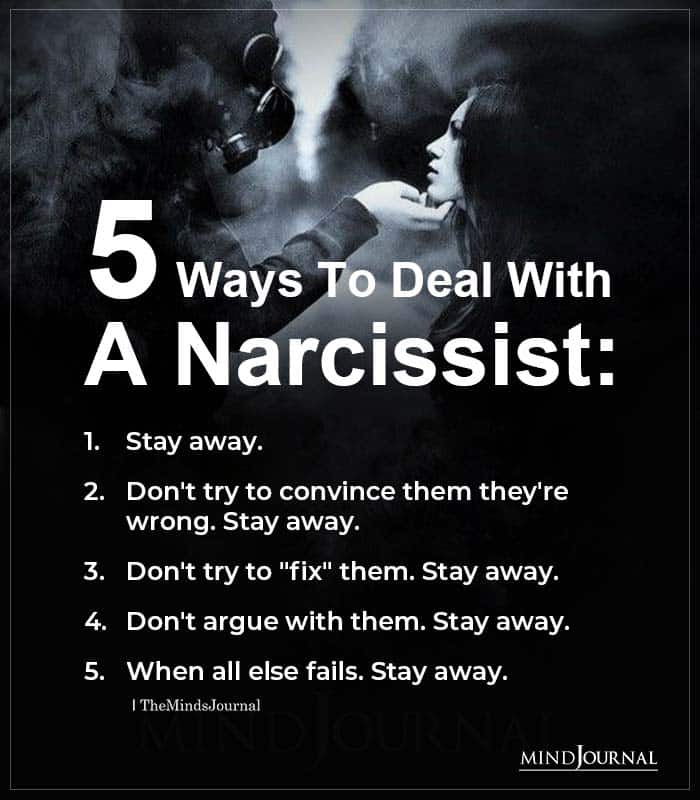 But if you refuse to play, a fight is less likely to happen.
But if you refuse to play, a fight is less likely to happen.Ask yourself questions. It can be helpful to reflect on possible reasons why you chose, or perhaps were drawn to, a spouse who exhibits narcissism. (A therapist is great at helping you navigate this.) Once you start to understand your motivation, you’ll have more clarity as to what you need.
Foster other healthy relationships. Turn to friends, family, a therapist—any supportive person who can offer you the respect and sounding board to help with your emotional health.
Marriage is hard work, even in the best of circumstances. And society and families preach that marriage is “for better or worse.” On top of this, narcissists don’t usually take criticism or suggestions well. So, it’s no surprise that someone who stays with a narcissistic spouse may tend to tolerate or ignore their narcissistic behavior.
Unfortunately, tolerating behavior might also mean you’re allowing it. When you make room for their behavior, you’re inadvertently enabling the narcissist to influence and control your life. In the process, you may start to lose or deny what’s important to you, including your hopes, dreams, and need for unconditional love.
When you make room for their behavior, you’re inadvertently enabling the narcissist to influence and control your life. In the process, you may start to lose or deny what’s important to you, including your hopes, dreams, and need for unconditional love.
You might feel you’re tolerating your spouse’s bad behavior only temporarily, while hoping or believing in a different future for your marriage. You imagine the relationship will get better somehow on its own or return to being more like a time when things were good.
But research on narcissists' relationships shows that although a narcissistic person might enhance their partner early in the relationship, as the relationship progresses, they will only become more focused on their own wants and needs—to the detriment of the other and the relationship.
As much as you may want to hope for change, it’s crucial to recognize that the mere act of sticking around and putting up with it will not improve a narcissist's behavior.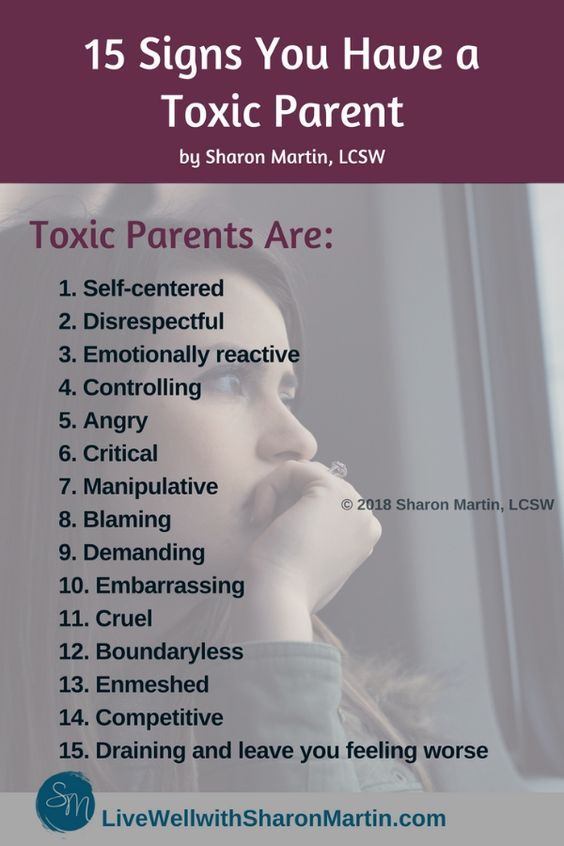 They need to want to work toward change.
They need to want to work toward change.
A 2020 study published in PLOS One looked at the links between narcissism, infidelity, and relationship satisfaction in young adults. The researchers found that narcissism was a predictor of infidelity. In other words, people with narcissistic personality disorder might be more likely to cheat on their partners than the general population.
Narcissists cheat for different reasons, including a lack of empathy. According to a 2014 Personality Disorders report, lack of empathy is a primary distinguishing feature of NPD.
When a narcissistic spouse cheats, they don’t necessarily understand how their actions affect others. Narcissists tend to be present-centered, caring primarily about their moment-to-moment desires, with little regard for anyone else’s feelings.
When your partner cheats, it’s natural to wonder what you did wrong. But your partner’s infidelity is not your fault. The average person who cheats will feel some guilt, but when a narcissist cheats, they are less likely to consider the effects on their partner.
You may often feel unloved when married to a narcissist, which also isn’t your fault. According to a 2019 study published in the Journal of Social and Personal Relationships, people with NPD have traits that make it harder to love another person.
Your narcissistic spouse may not be able to support you or show genuine emotion. Any love or affection they show is often given only for their own benefit.
It’s possible that your spouse made you feel loved early in the relationship. They may even have made you feel like you were the most important person in the world. But as time progressed, it’s likely that they started to ignore and devalue you.
Narcissists are good at making the people close to them feel both loved and unloved, which can be confusing and emotionally draining. Narcissists usually want you to feel loved so that you love them back and fulfill their need to be adored. At the same time, they also want you to feel like you are undeserving of love and that no one but them could possibly love you.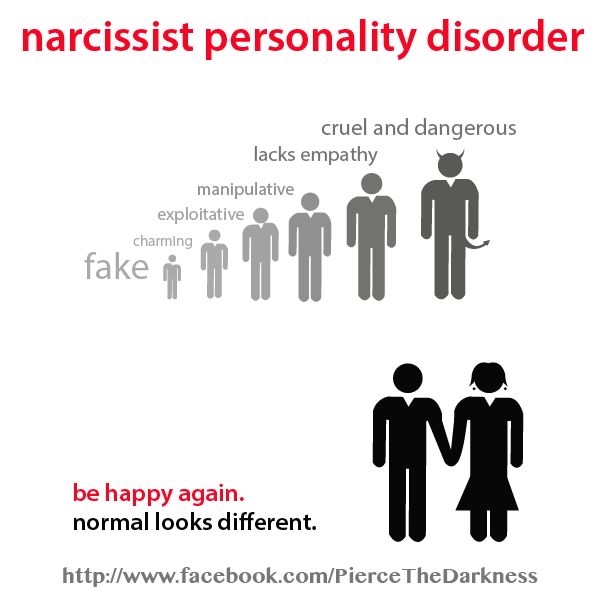
This conflict can lead you to become emotionally dependent, making it less likely that you’ll leave. If you express concerns about your spouse’s behavior or consider leaving them, they will likely find a way to reel you back with promises of change, gifts, and extra attention. They may also (or alternatively) issue threats.
Love should not depend on absolute obedience or the suppression of your own needs—financial, emotional, physical, spiritual, or social. Love should be unconditional. Everyone, including you, deserves that kind of love.
Being Stuck or Taken Advantage of FinanciallyNarcissists are skilled at taking advantage of their spouses financially. According to the National Coalition Against Domestic Violence, 99% of domestic abuse victims experience financial abuse. Money is the most significant barrier to leaving an abusive relationship.
If you’re married to a narcissist, you might be working and paying for everything while your partner refuses to work.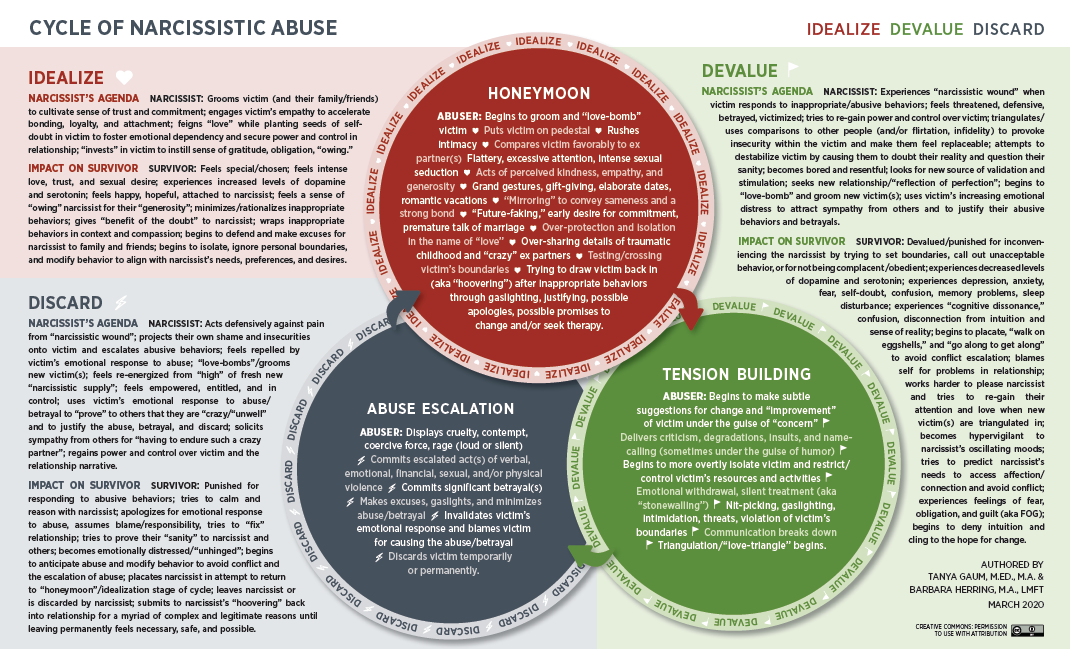 Or, your partner might keep any money they earn for themselves.
Or, your partner might keep any money they earn for themselves.
A narcissist may also use money as a way to punish their partner. When they get what they want, they might reward you financially (with a gift or money). When they’re being hurtful or cruel, they might withhold money, whether it’s for a genuine need (such as household supplies, food, clothing, etc.) or for something you simply want. If you can, try to be prepared—set some funds aside for basic expenses, or in case you find that you need to leave an unsafe situation quickly.
Being married to a narcissist can be difficult. If your narcissistic spouse is willing to seek help, it might be possible to navigate your marriage successfully together. But if they’re unwilling to do so, with the help of a trusted professional, you can always choose to seek peace of mind and heal by leaving the marriage.
- What you say about others could point to your own narcissism: Journal of Personality and Social Psychology.
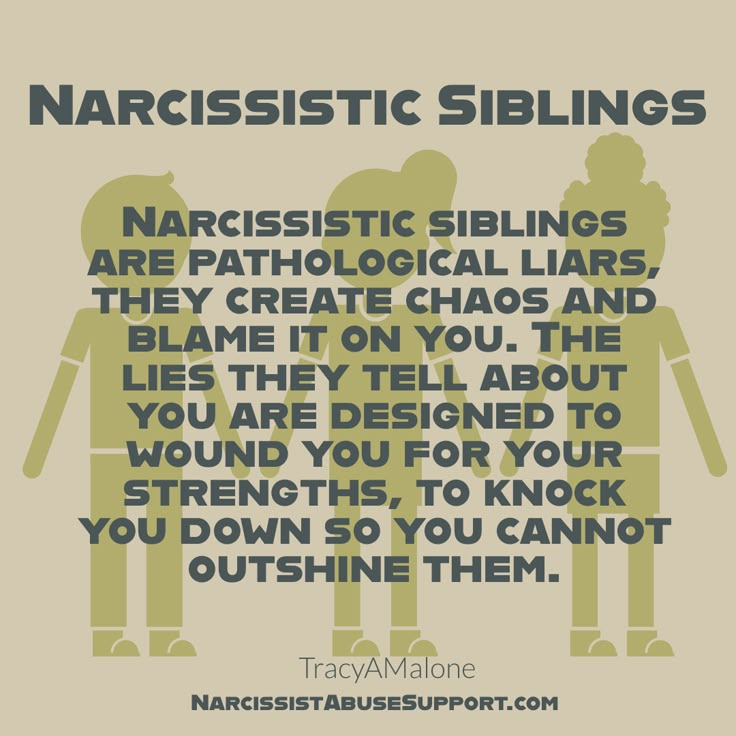 2010. “Perceiver Effects as Projective Tests: What Your Perceptions of Others Say about You.” https://digitalcommons.unl.edu/
2010. “Perceiver Effects as Projective Tests: What Your Perceptions of Others Say about You.” https://digitalcommons.unl.edu/ - Why narcissists spark jealousy: Personality and Individual Differences. 2017. “Do narcissists try to make romantic partners jealous on purpose? An examination of motives for deliberate jealousy-induction among subtypes of narcissism.” https://www.researchgate.net/profile/Gregory_Tortoriello/publication/315693591_Do_narcissists_try_to_make_romantic_partners_jealous_on_purpose_An_examination_of_motives_for_deliberate_jealousy-induction_among_subtypes_of_narcissism/links/59d4ceed4585150177fc820f/Do-narcissists-try-to-make-romantic-partners-jealous-on-purpose-An-examination-of-motives-for-deliberate-jealousy-induction-among-subtypes-of-narcissism.pdf
- How to ID a narcissist: American Psychological Association. 2016. “Speaking of Psychology:Recognizing a narcissist” https://www.apa.org/research/action/speaking-of-psychology/narcissism
- Are you a narcissist?: PLOS One.
 2014. “Development and Validation of the Single Item Narcissism Scale (SINS).” https://journals.plos.org/plosone/article?id=10.1371/journal.pone.0103469
2014. “Development and Validation of the Single Item Narcissism Scale (SINS).” https://journals.plos.org/plosone/article?id=10.1371/journal.pone.0103469
Altınok A, Kılıç N. Exploring the associations between narcissism, intentions towards infidelity, and relationship satisfaction: attachment styles as a moderator. PLoS One. 2020;15(11):e0242277. doi:10.1371/journal.pone.0242277
Baskin-Sommers A, Krusemark E, Ronningstam E. Empathy in narcissistic personality disorder: from clinical and empirical perspectives. Personal Disord. 2014;5(3):323-333. doi:10.1037/per0000061
Czarna AZ, Śmieja M, Wider M, et al Narcissism and partner-enhancement at different relationship stages. J Res Personal. 2022;98:104212. doi:10.1016/j.jrp.2022.104212
National Coalition Against Domestic Violence. Quick guide: economic and financial abuse. Available at https://ncadv.org/blog/posts/quick-guide-economic-and-financial-abuse. Published April 12, 2017. Accessed October 24, 2022.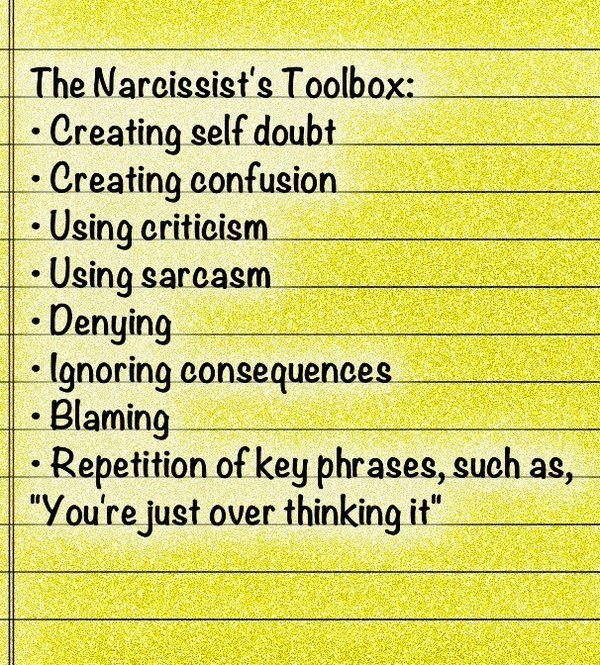
Vrabel JK, Zeigler-Hill V, Lehtman M, et al. Narcissism and perceived power in romantic relationships. J Social Pers Relat. 2019;37(1):124-142. doi:10.1177/0265407519858685
Notes: This article was originally published July 10, 2020 and most recently updated November 21, 2022.
Holly Pevzner
Holly is a self-described "slipper-wearer; Brooklyn-dweller; slow-cooker addict; and mom to two human rascals." She writes about parenting, pregnancy, health, nutrition, and family travel. Holly started her career as a magazine editor and spent years at several glossies, including Self, Prevention, and Fitness magazines. Now, as a freelancer, she works as a contributing editor at Scholastic Parent & Child, writes the family health column for First for Women, and regularly contributes sponsored, social, and traditional content to brands, pubs, and websites such as The Bump, Everyday Health, and Fisher-Price.
Signs You’re Married To A Narcissist—And What To Do About It
It’s not that there are no red flags that signal narcissism during dating, it’s that many of the tell-tale traits of narcissism become more pronounced after getting hitched.
“With marriage—and parenthood—there’s more interdependence, more demands,” says Ramani Durvasula, Ph.D., author of Should I Stay or Should I Go: How to Survive a Relationship with a Narcissist. “And that often doesn’t play well with an egocentric narcissist.”
Could your dearly beloved, in fact, be a narcissist? Here are some signs to clue you in.
Signs You Married A NarcissistSome of the same things that attracted you to your partner, such as confidence, assertiveness, and a big personality, may actually be the same characteristics that fuel their narcissism. Not all of the signs are obvious either, and some may have you wondering if you're the problem, not them.
#1: You Feel IsolatedDrifting apart from some friends after a big life change (marriage! babies!) happens to everyone, but if your life is now rife with severed ties, it’s time to pause and reassess.
“After marriage, narcissists often isolate their spouses from their friends through a slow and methodical process,” says Cristina Dorazio, PhD, a psychologist who provides both individual and couples therapy in New York City.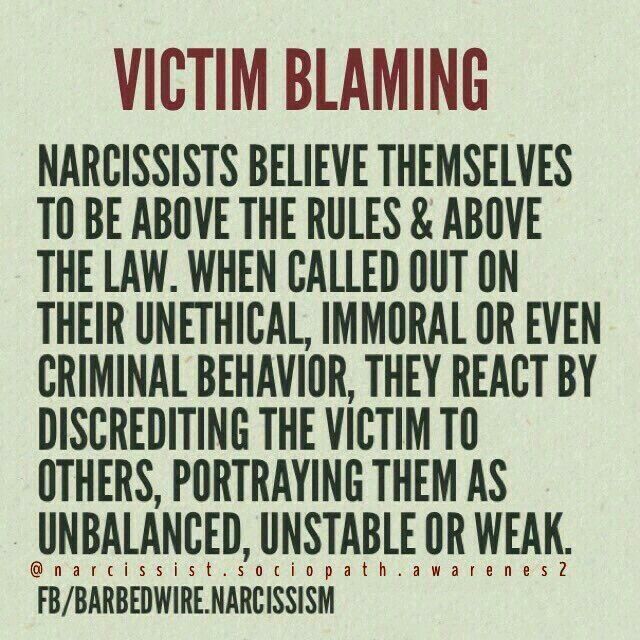 Your significant other may go out of his or her way, for instance, to make an argument as to why they don't like your friend. (Bad-mouthing others is a very common narcissistic behavior, notes research in the Journal of Personality and Social Psychology.)
Your significant other may go out of his or her way, for instance, to make an argument as to why they don't like your friend. (Bad-mouthing others is a very common narcissistic behavior, notes research in the Journal of Personality and Social Psychology.)
“They can be very good at this, even making you start to question why you were ever friends in the first place,” says Dorazio. This is especially true for friends who are “on to” your narcissist spouse’s behavior.
#2: You're Being GaslightedWhy can’t you take a joke? I never said that! Why are you always so angry? You’re being paranoid. Why can’t you let go of the past? No one will ever love you like I do. These questions and phrases can be typical of narcissists.
“This is all part of gaslighting,” says Durvasula. Here, an individual uses words or behavior to cause you to doubt and confuse your own reality. “I have never seen a narcissistic marriage in which gaslighting did not happen,” says Durvasula.
Before you were married, there’s a good chance your now-spouse heaped on the flattery. (Narcissists know how to woo.) After the I Dos, however, that often shifts dramatically. Now, the compliments may only arrive when you are in the company of others.
“This allows the narcissist to look like a great husband in front of other people and contradicts any complaints you might share about him later,” says Dorazio.
Another flattery twist: While compliments directed to you might fizzle, a narcissist might instead lay it on thick to others in your orbit. “They do this to feed your insecurity,” says Dorazio.
#4: It Feels Like Your Partner Is Trying To Make You JealousBeyond praising others, a narcissist may talk glowingly about an ex or flirt with someone right in front of you. This is no accident or innocent misstep, but a strategic move designed to make you feel jealous, according to a 2017 report in the journal Personality and Individual Differences.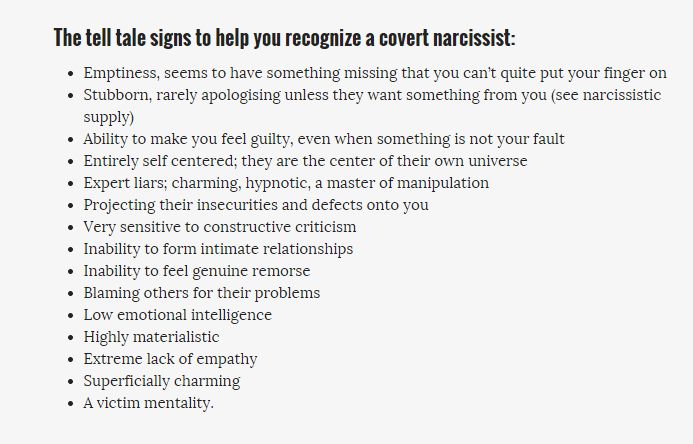 Beyond stoking your own insecurity, researchers note that narcissists do this in order to wield control and/or to buoy their self-esteem.
Beyond stoking your own insecurity, researchers note that narcissists do this in order to wield control and/or to buoy their self-esteem.
Jealousy is not an uncommon reaction when a baby joins a narcissist’s family, says Suzanne Degges-White, PhD, professor and chair of the department of counseling and higher education at Northern Illinois University in DeKalb: “Narcissistic partners can become resentful of the time you invest in child care, so he might begin to insist that you focus more attention on the marriage than the child.”
This, however, is not universal. Some narcissists, in fact, dramatically shift their focus solely on the baby. “These narcissists may see the child as an extension of themselves, so they co-opt the child, leaving you on the sidelines in terms of attention and family involvement,” says Degges-White.
#6: Your Parenting Skills Are Criticized“Narcissists often blame any perceived ‘bad’ behavior of their children on their spouse’s lack of parenting skills,” says Dorazio. Adding insult to injury, narcissists are often not as involved as their spouse in raising children in the first place—and they often use their career as an excuse to bow out of responsibilities. “In fact, if the narcissistic husband is the sole provider or earns more money in the marriage, they’ll often use that as a counterargument to not taking care of the children,” says Dorazio.
Adding insult to injury, narcissists are often not as involved as their spouse in raising children in the first place—and they often use their career as an excuse to bow out of responsibilities. “In fact, if the narcissistic husband is the sole provider or earns more money in the marriage, they’ll often use that as a counterargument to not taking care of the children,” says Dorazio.
Narcissists are, by definition, self-involved folks who lack empathy. So it’s no shock that you’d likely turn to your support system to complain and commiserate about this type of behavior. The catch? Knowing very well that you’d likely do this, a narcissist may talk to your family and friends before you get the chance to. “A narcissist may say he’s concerned that you’re a bit ‘off’ lately,” says Dorazio. “Because, if he confides about your problematic behavior first, he takes the heat off himself.”
#8: The Signature 'Love Bombs' DwindleWhen dating, you were likely overwhelmed with signs of adoration, like constant love notes, flower deliveries and surprise gifts.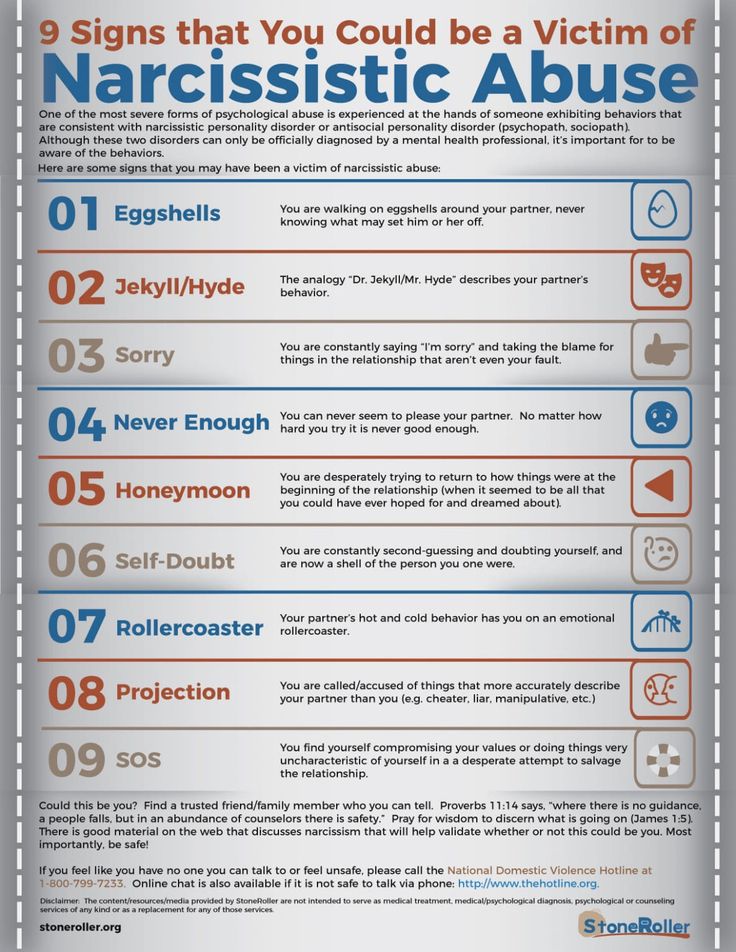 (This is what it feels like to be swept off your feet, you thought!) After marriage, however—poof—it all stops. “You’ve been conquered through marriage, so courting with ‘love bombs’ is no longer needed,” says Dorazio, noting that these extravagant displays can often return, typically when your spouse wants something from you.
(This is what it feels like to be swept off your feet, you thought!) After marriage, however—poof—it all stops. “You’ve been conquered through marriage, so courting with ‘love bombs’ is no longer needed,” says Dorazio, noting that these extravagant displays can often return, typically when your spouse wants something from you.
“For example, if you’re surprised with a trip, you may be expected to show your gratitude in a very specific way, like dressing a certain way while on the trip or being available for sex whenever your spouse wants,” says Dorazio.
#9: They Admit It!A study of more than 2,200 people found it’s actually pretty easy to ID narcissists. You simply need to ask them the following: To what extent do you agree with this statement: "I am a narcissist." And you need to define “narcissist” at the same time, noting that it means egotistical, self-focused and vain. Researchers relayed that the reason this works is that those who are narcissists can appear to be proud of it.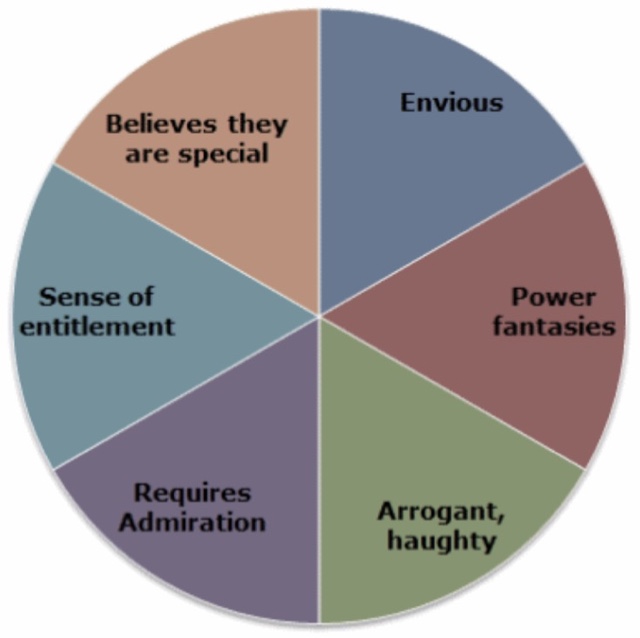
“Narcissists typically don’t perceive their behavior as a problem. Instead, they feel that they’re perfectly fine and others have problems,” notes Degges-White. That doesn’t mean that there’s no hope. Here are some tips on communicating with a narcissistic partner.
Argue this way. Narcissists cannot be wrong, making arguing with them close to impossible. “So it’s smart to find a way to convince your partner that the ‘right answer’ or the ‘right thing to do’ was their idea,” says Degges-White. “This way, you can compliment them on what a great idea they had to solve the issue.”
Ignore insults. Insults are bait. A narcissist wants you to take them, react to them, and engage in a fight. But if you refuse to play, a fight is less likely to happen.
Ask yourself questions. It can be helpful to reflect on possible reasons why you chose, or perhaps were drawn to, a spouse who exhibits narcissism.
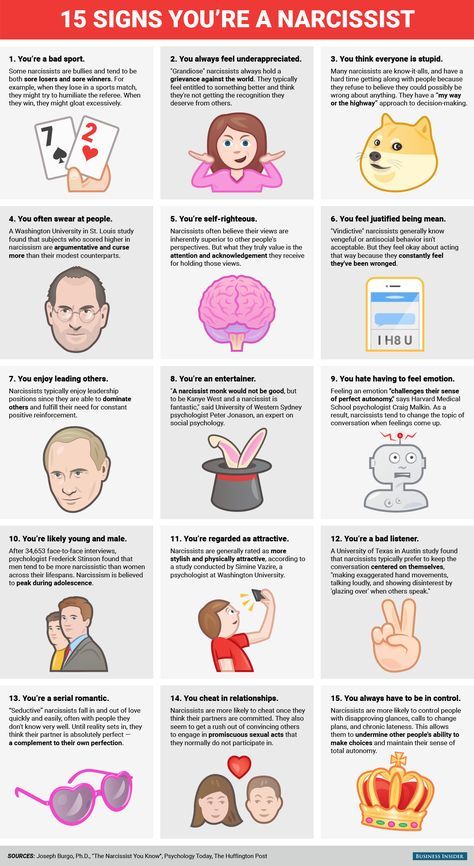 (A therapist is great at helping you navigate this.) Once you start to understand your motivation, you’ll have more clarity as to what you need.
(A therapist is great at helping you navigate this.) Once you start to understand your motivation, you’ll have more clarity as to what you need.Foster other healthy relationships. Turn to friends, family, a therapist—any supportive person who can offer you the respect and sounding board to help with your emotional health.
Marriage is hard work, even in the best of circumstances. And society and families preach that marriage is “for better or worse.” On top of this, narcissists don’t usually take criticism or suggestions well. So, it’s no surprise that someone who stays with a narcissistic spouse may tend to tolerate or ignore their narcissistic behavior.
Unfortunately, tolerating behavior might also mean you’re allowing it. When you make room for their behavior, you’re inadvertently enabling the narcissist to influence and control your life. In the process, you may start to lose or deny what’s important to you, including your hopes, dreams, and need for unconditional love.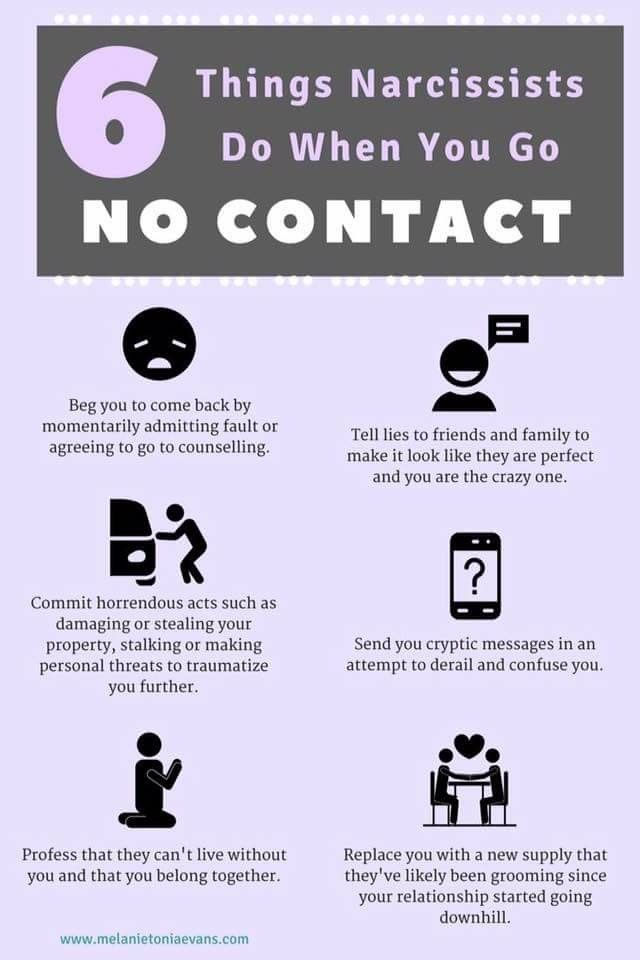
You might feel you’re tolerating your spouse’s bad behavior only temporarily, while hoping or believing in a different future for your marriage. You imagine the relationship will get better somehow on its own or return to being more like a time when things were good.
But research on narcissists' relationships shows that although a narcissistic person might enhance their partner early in the relationship, as the relationship progresses, they will only become more focused on their own wants and needs—to the detriment of the other and the relationship.
As much as you may want to hope for change, it’s crucial to recognize that the mere act of sticking around and putting up with it will not improve a narcissist's behavior. They need to want to work toward change.
CheatingA 2020 study published in PLOS One looked at the links between narcissism, infidelity, and relationship satisfaction in young adults. The researchers found that narcissism was a predictor of infidelity.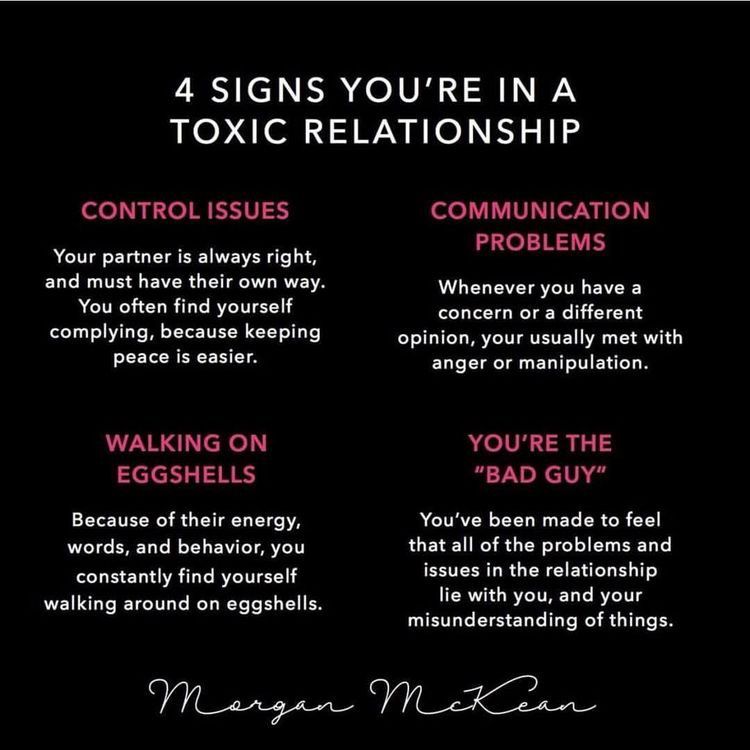 In other words, people with narcissistic personality disorder might be more likely to cheat on their partners than the general population.
In other words, people with narcissistic personality disorder might be more likely to cheat on their partners than the general population.
Narcissists cheat for different reasons, including a lack of empathy. According to a 2014 Personality Disorders report, lack of empathy is a primary distinguishing feature of NPD.
When a narcissistic spouse cheats, they don’t necessarily understand how their actions affect others. Narcissists tend to be present-centered, caring primarily about their moment-to-moment desires, with little regard for anyone else’s feelings.
When your partner cheats, it’s natural to wonder what you did wrong. But your partner’s infidelity is not your fault. The average person who cheats will feel some guilt, but when a narcissist cheats, they are less likely to consider the effects on their partner.
Feeling UnlovedYou may often feel unloved when married to a narcissist, which also isn’t your fault. According to a 2019 study published in the Journal of Social and Personal Relationships, people with NPD have traits that make it harder to love another person.
Your narcissistic spouse may not be able to support you or show genuine emotion. Any love or affection they show is often given only for their own benefit.
It’s possible that your spouse made you feel loved early in the relationship. They may even have made you feel like you were the most important person in the world. But as time progressed, it’s likely that they started to ignore and devalue you.
Narcissists are good at making the people close to them feel both loved and unloved, which can be confusing and emotionally draining. Narcissists usually want you to feel loved so that you love them back and fulfill their need to be adored. At the same time, they also want you to feel like you are undeserving of love and that no one but them could possibly love you.
This conflict can lead you to become emotionally dependent, making it less likely that you’ll leave. If you express concerns about your spouse’s behavior or consider leaving them, they will likely find a way to reel you back with promises of change, gifts, and extra attention.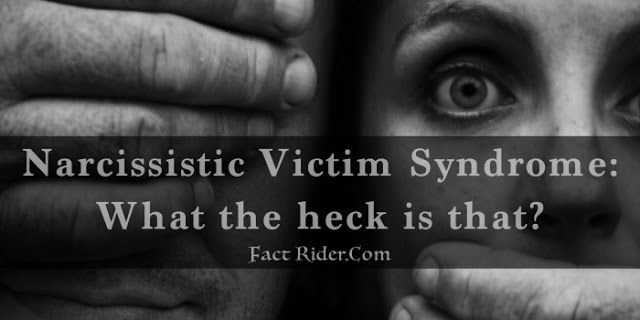 They may also (or alternatively) issue threats.
They may also (or alternatively) issue threats.
Love should not depend on absolute obedience or the suppression of your own needs—financial, emotional, physical, spiritual, or social. Love should be unconditional. Everyone, including you, deserves that kind of love.
Being Stuck or Taken Advantage of FinanciallyNarcissists are skilled at taking advantage of their spouses financially. According to the National Coalition Against Domestic Violence, 99% of domestic abuse victims experience financial abuse. Money is the most significant barrier to leaving an abusive relationship.
If you’re married to a narcissist, you might be working and paying for everything while your partner refuses to work. Or, your partner might keep any money they earn for themselves.
A narcissist may also use money as a way to punish their partner. When they get what they want, they might reward you financially (with a gift or money). When they’re being hurtful or cruel, they might withhold money, whether it’s for a genuine need (such as household supplies, food, clothing, etc. ) or for something you simply want. If you can, try to be prepared—set some funds aside for basic expenses, or in case you find that you need to leave an unsafe situation quickly.
) or for something you simply want. If you can, try to be prepared—set some funds aside for basic expenses, or in case you find that you need to leave an unsafe situation quickly.
Being married to a narcissist can be difficult. If your narcissistic spouse is willing to seek help, it might be possible to navigate your marriage successfully together. But if they’re unwilling to do so, with the help of a trusted professional, you can always choose to seek peace of mind and heal by leaving the marriage.
- What you say about others could point to your own narcissism: Journal of Personality and Social Psychology. 2010. “Perceiver Effects as Projective Tests: What Your Perceptions of Others Say about You.” https://digitalcommons.unl.edu/
- Why narcissists spark jealousy: Personality and Individual Differences. 2017. “Do narcissists try to make romantic partners jealous on purpose? An examination of motives for deliberate jealousy-induction among subtypes of narcissism.
 ” https://www.researchgate.net/profile/Gregory_Tortoriello/publication/315693591_Do_narcissists_try_to_make_romantic_partners_jealous_on_purpose_An_examination_of_motives_for_deliberate_jealousy-induction_among_subtypes_of_narcissism/links/59d4ceed4585150177fc820f/Do-narcissists-try-to-make-romantic-partners-jealous-on-purpose-An-examination-of-motives-for-deliberate-jealousy-induction-among-subtypes-of-narcissism.pdf
” https://www.researchgate.net/profile/Gregory_Tortoriello/publication/315693591_Do_narcissists_try_to_make_romantic_partners_jealous_on_purpose_An_examination_of_motives_for_deliberate_jealousy-induction_among_subtypes_of_narcissism/links/59d4ceed4585150177fc820f/Do-narcissists-try-to-make-romantic-partners-jealous-on-purpose-An-examination-of-motives-for-deliberate-jealousy-induction-among-subtypes-of-narcissism.pdf - How to ID a narcissist: American Psychological Association. 2016. “Speaking of Psychology:Recognizing a narcissist” https://www.apa.org/research/action/speaking-of-psychology/narcissism
- Are you a narcissist?: PLOS One. 2014. “Development and Validation of the Single Item Narcissism Scale (SINS).” https://journals.plos.org/plosone/article?id=10.1371/journal.pone.0103469
Altınok A, Kılıç N. Exploring the associations between narcissism, intentions towards infidelity, and relationship satisfaction: attachment styles as a moderator. PLoS One. 2020;15(11):e0242277. doi:10.1371/journal.pone.0242277
PLoS One. 2020;15(11):e0242277. doi:10.1371/journal.pone.0242277
Baskin-Sommers A, Krusemark E, Ronningstam E. Empathy in narcissistic personality disorder: from clinical and empirical perspectives. Personal Disord. 2014;5(3):323-333. doi:10.1037/per0000061
Czarna AZ, Śmieja M, Wider M, et al Narcissism and partner-enhancement at different relationship stages. J Res Personal. 2022;98:104212. doi:10.1016/j.jrp.2022.104212
National Coalition Against Domestic Violence. Quick guide: economic and financial abuse. Available at https://ncadv.org/blog/posts/quick-guide-economic-and-financial-abuse. Published April 12, 2017. Accessed October 24, 2022.
Vrabel JK, Zeigler-Hill V, Lehtman M, et al. Narcissism and perceived power in romantic relationships. J Social Pers Relat. 2019;37(1):124-142. doi:10.1177/0265407519858685
Notes: This article was originally published July 10, 2020 and most recently updated November 21, 2022.
Holly Pevzner
Holly is a self-described "slipper-wearer; Brooklyn-dweller; slow-cooker addict; and mom to two human rascals.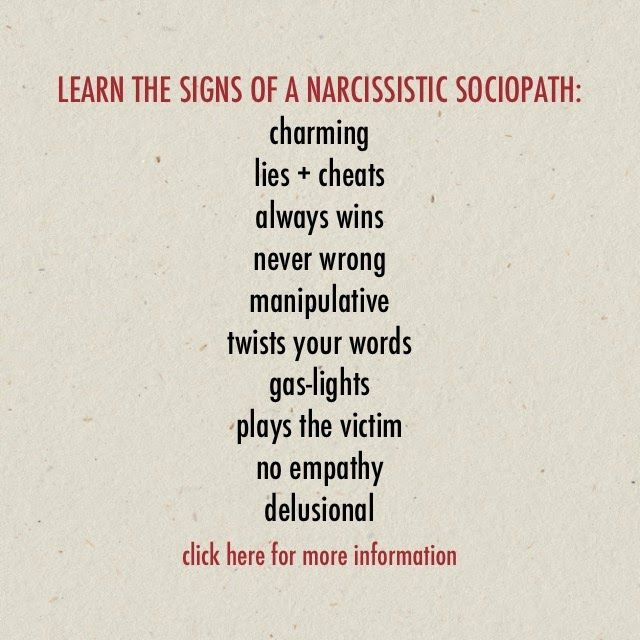 " She writes about parenting, pregnancy, health, nutrition, and family travel. Holly started her career as a magazine editor and spent years at several glossies, including Self, Prevention, and Fitness magazines. Now, as a freelancer, she works as a contributing editor at Scholastic Parent & Child, writes the family health column for First for Women, and regularly contributes sponsored, social, and traditional content to brands, pubs, and websites such as The Bump, Everyday Health, and Fisher-Price.
" She writes about parenting, pregnancy, health, nutrition, and family travel. Holly started her career as a magazine editor and spent years at several glossies, including Self, Prevention, and Fitness magazines. Now, as a freelancer, she works as a contributing editor at Scholastic Parent & Child, writes the family health column for First for Women, and regularly contributes sponsored, social, and traditional content to brands, pubs, and websites such as The Bump, Everyday Health, and Fisher-Price.
signs that you are a narcissist
Narcissism is a term that characterizes the behavior of a person. It usually includes complacency, excessive self-esteem, relationship manipulation, and taking advantage of other people. In modern psychology, there is even a narcissistic personality type. In psychiatry, there is such a thing as narcissistic personality disorder. In this case, narcissism is no longer just some kind of complex of human character traits, but a real mental illness that cannot be completely cured.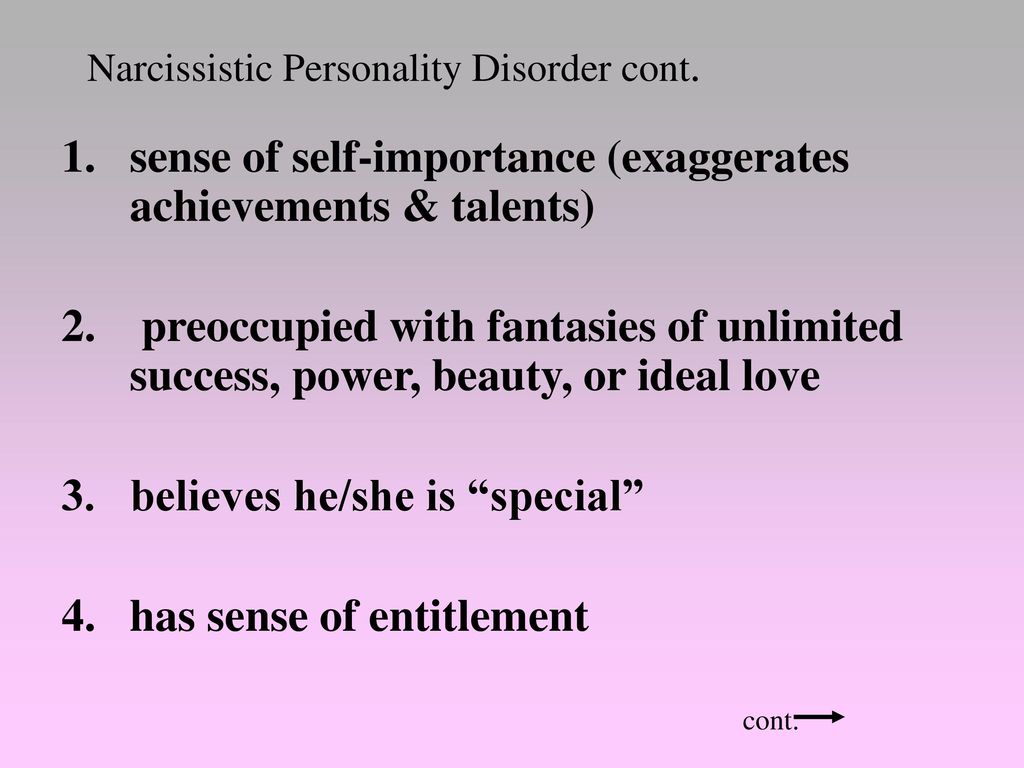 The good news is that narcissism in such a serious form is very rare. However, in this article, let's talk about the normal kind of narcissism. Here is a list of 18 behaviors of narcissists (or narcissists) based on scientific research as well as expert opinion. It won't help you diagnose anything, of course, but with it you will already be able to spot the narcissist from your environment. Or maybe he lurks in you? nine0003
The good news is that narcissism in such a serious form is very rare. However, in this article, let's talk about the normal kind of narcissism. Here is a list of 18 behaviors of narcissists (or narcissists) based on scientific research as well as expert opinion. It won't help you diagnose anything, of course, but with it you will already be able to spot the narcissist from your environment. Or maybe he lurks in you? nine0003
You do not know how to win and lose with dignity
It is believed that some narcissistic people are bullies, and one of their most unpleasant traits is the inability to win and lose with dignity. There is no golden mean. For example, when narcissists fail at something, they may try to insult others or even blame their failure on them. When victory is on their side, they can be very gloating and even offend an opponent who failed to win. nine0003
You feel underestimated
Narcissists love to complain about the world. People with narcissistic behavior tend to feel they are entitled to something better, more.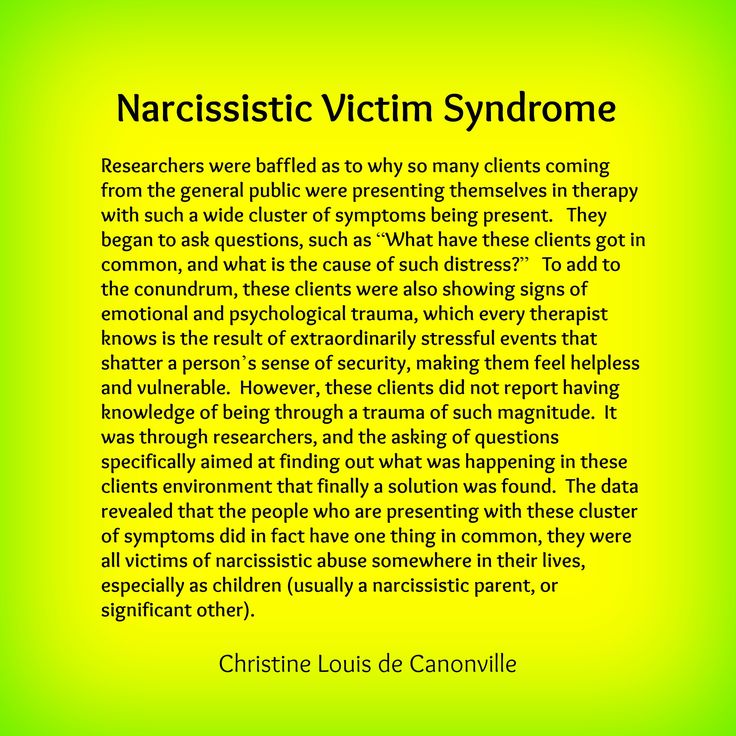 Therefore, they think that others simply underestimate them. And, of course, they also lack admiration all the time.
Therefore, they think that others simply underestimate them. And, of course, they also lack admiration all the time.
You are a closed introvert
Yes, and this can also be. Psychologists distinguish between two types of narcissism. In the first case, it can be hyper-aggressive, super-loud behavior. But there is also a milder form of narcissism. The so-called "hidden narcissism", which is characterized by introverted behavior, hypersensitivity, anxiety, as well as the activation of a self-defense mechanism. Nevertheless, in both cases, in the behavior of narcissistic people, such features as arrogance, vanity, egocentrism are observed. nine0003
You consider yourself the smartest and everyone else fools
Intellectual pride is one of the signs of narcissistic behavior. Usually, narcissists are know-it-alls, which makes it difficult for them to communicate with others, because, in their opinion, they are never wrong. Such people live with such a motto in life: "There are only two points of view in the world: mine and the wrong one.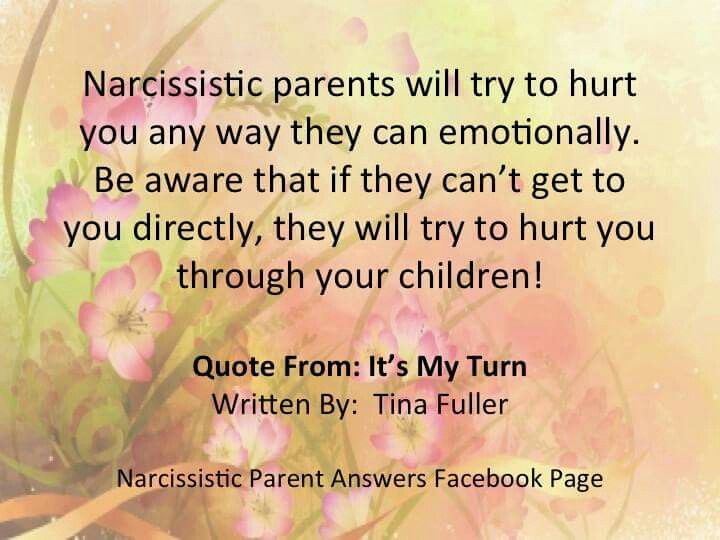 "
"
You are very fond of arguing and confronting people
Psychologists Nicholas Holtzman and Michael Strub of Washington University in St. swear more than calmer and more modest individuals. They also tend to use more explicit and sexual language in their speech. nine0003
You are a self-satisfied conversationalist
Narcissists often believe that their views are the most correct and best. And they definitely need others to recognize it. For example, a narcissist believes that he has some kind of special connection with higher powers. But it's not enough for him to just think like that. He needs others to know this and admire how deeply spiritual he is.
You justify your malice
Vindictive narcissists certainly understand that being rude and offensive is simply unacceptable. But they may well allow themselves such behavior because of resentment. And that means that they justify their unseemly actions. Moreover, they are often offended for no reason, taking everything personally.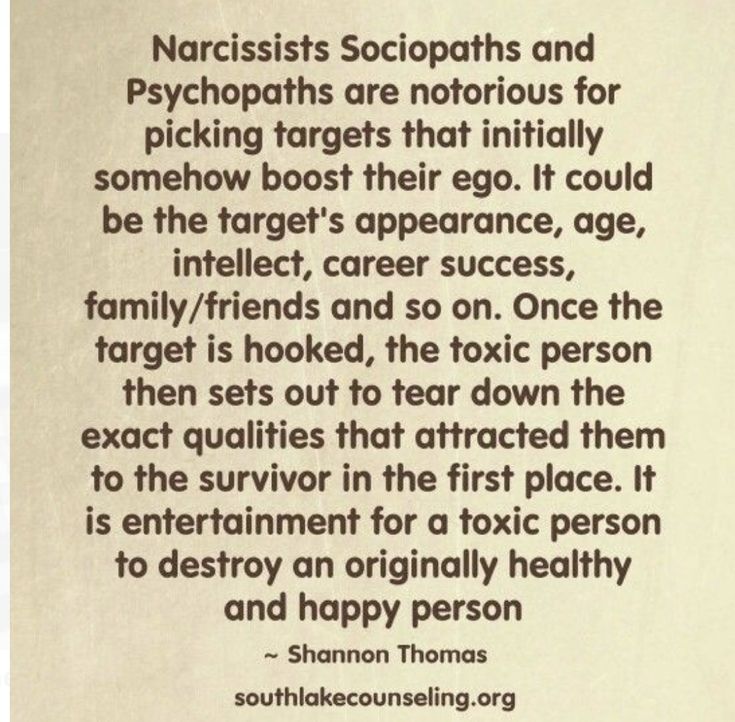 nine0003
nine0003
You like to command and direct
In practice, narcissists are often leaders because they like to control other people. After all, this is how they assert themselves.
You are an insensitive person
The very fact that narcissistic people are capable of feelings suggests that someone or something can affect them emotionally. This is why narcissists hate to feel anything. After all, for them, this is a recognition of their weakness and the fact that they can somehow be influenced and influenced. Therefore, narcissists can easily change the subject of conversation when it comes to feelings, especially their own. nine0003
Do you consider yourself the most beautiful?
According to research conducted by Simin Wazir, a psychologist at the University of Washington, narcissists are generally rated by society as brighter and more attractive in appearance. However, this is not always the case. In the course of the experiment, narcissists highly rated their external data and mental abilities. However, when passing the IQ test, they did not show anything outstanding. When peers were asked to evaluate their narcissistic friends according to external data, their opinion turned out to be lower in this regard than the self-esteem of narcissistic people. nine0003
However, when passing the IQ test, they did not show anything outstanding. When peers were asked to evaluate their narcissistic friends according to external data, their opinion turned out to be lower in this regard than the self-esteem of narcissistic people. nine0003
You love to talk but not listen
Anita Vangelisti, a psychologist at the University of Texas at Austin, has found that narcissists love to be the topic of every conversation. At the same time, they emotionally conduct a conversation, speak loudly and show disinterest in others with their whole appearance.
You fall in love easily and blindly
People who are inherently narcissistic fall in love quickly and easily and just as quickly and easily lose interest in a person. And all because at first the narcissist, arriving in "rose-colored glasses", sees in front of him an absolutely ideal partner who perfectly complements his own perfection. This continues until his "glasses" drop and he sees everything as real.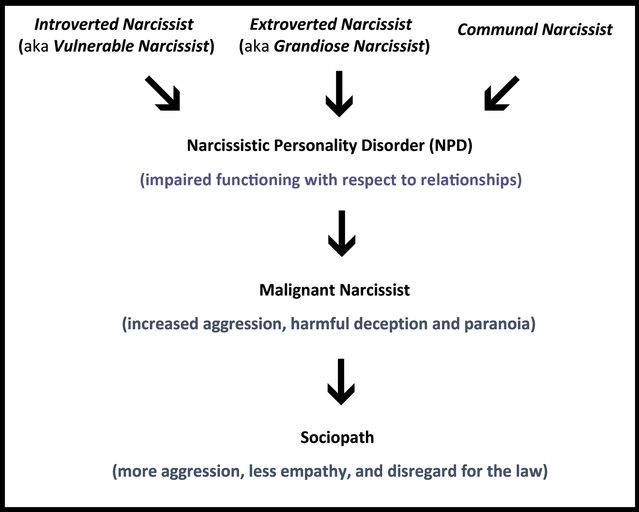 Then he realizes that the ideal he saw is just an illusion. And it is this fact that will put an end to their romantic relationship. After all, imperfection cannot be near perfection, can it? nine0003
Then he realizes that the ideal he saw is just an illusion. And it is this fact that will put an end to their romantic relationship. After all, imperfection cannot be near perfection, can it? nine0003
You walk to the left.
Psychologists Joshua Foster of the University of South Alabama and W. Keith Campbell of the University of Georgia found that narcissists are more prone to cheating and cheating. The study also found that four months in a relationship is the usual amount of time it takes for a person dating a narcissist to see their true colors.
You elevate some people
According to experts, this logic goes like this: “If I find someone perfect to be around, maybe some of his perfection will reflect on me, and I will become perfect thanks to communicate with him." The search for an ideal is an absolute norm in the life of narcissistic people. And they don't care that Mr. and Miss Perfect don't exist. nine0003
You like to exalt yourself at the expense of others
Narcissistic people like to put others down to boost their ego. Also, experts believe that the desire for admiration is like a drug for narcissists. However, things become more complicated because others will not constantly admire them. Therefore, narcissistic people are forced to look for new acquaintances and connections from which they can receive a new portion of applause.
Also, experts believe that the desire for admiration is like a drug for narcissists. However, things become more complicated because others will not constantly admire them. Therefore, narcissistic people are forced to look for new acquaintances and connections from which they can receive a new portion of applause.
Your parents both ignored and adored you as a child
Research shows that a combination of ignorant behavior towards one's child is one of the causes of narcissism that later manifests itself in adults. Psychologists explain that the inconsistent attitude of parents towards their children will subsequently arouse in them a craving for admiration and lead narcissistic people to a life in which they will constantly strive for fleeting fueling of their ego.
You are friends for personal gain
Narcissism also finds its place in friendship. For example, girls choose male friends with high social and material status so that they can feel “on the level”.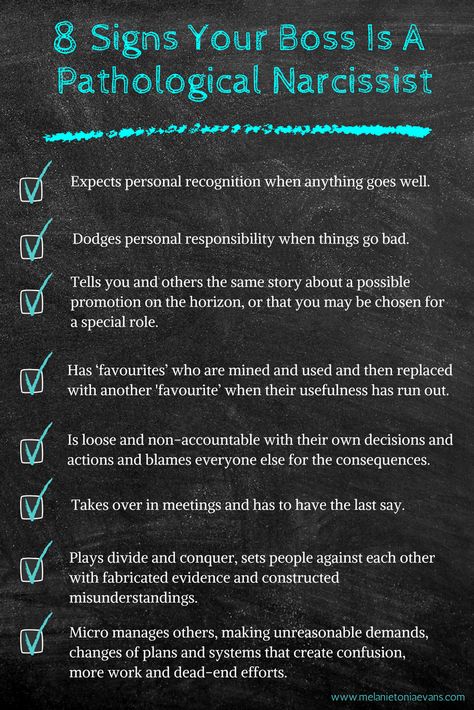 Young people, in choosing their company, adhere to more driven guys who cannot interfere with them when meeting a girl. nine0003
Young people, in choosing their company, adhere to more driven guys who cannot interfere with them when meeting a girl. nine0003
You always want to be in control.
Narcissists love to be in control without becoming aggressive. For example, in a romantic relationship, their control may be manifested through constant lack of punctuality or requests to drop everything and do as they please. This is how narcissistic people provide themselves with a certain comfort zone in a relationship where the other partner cannot somehow influence the situation or change something. In doing so, narcissists retain the sense of independence and self-sufficiency that they so badly need. nine0003
Author. Harper's BAZAAR Kazakhstan. A photo. Shutterstock.com
Share:
Narcissist
Tags
Relationships Women Love Men Psychology Most of us have had relationships with narcissists. It may not necessarily be a loved one - daffodils are everywhere: neighbors, colleagues, friends. You can get caught up in the nasty morass of a relationship with a person who loves only himself. nine0003
You can get caught up in the nasty morass of a relationship with a person who loves only himself. nine0003
This is your fault - you voluntarily agreed to interact with the narcissist. Therefore, do not complain if it is so difficult for you: it is better to leave immediately. Unless you're a masochist, of course.
Unhealthy relationships exhaust you and take away all your strength. A person cannot be happy if there is someone next to him who constantly poisons his life. Reconsider your views on the people around you and what is happening to you. Perhaps you really should stop communicating with a person if you notice these sad signs ...
Signs of a narcissistic person
- This person never takes responsibility for what happens. Instead, he likes to blame others.
- Narcissistic person is not emotional. He rarely expresses his emotions, especially during a quarrel. He can also forbid you to express emotions, and this is a sophisticated form of violence.
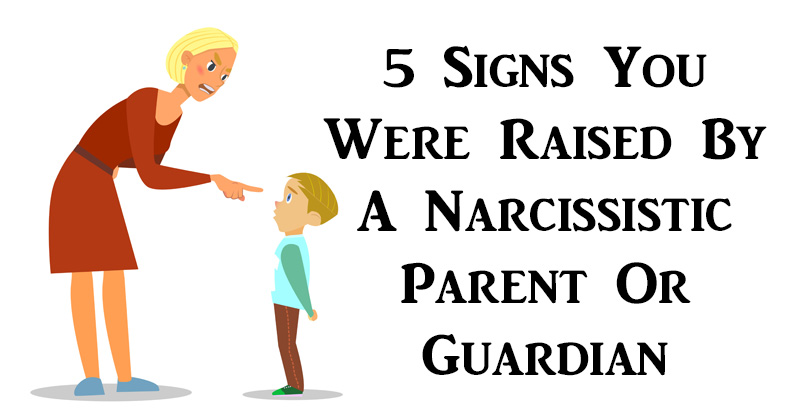
- You care about maintaining and developing relationships. If you have invested a lot in your relationship with this person, and he has not made a single step forward, this is a sure sign of narcissism. A narcissist, like an energy vampire, takes all your energy and gives nothing in return. nine0103
- You constantly make excuses to him. All your strength goes into fixing something - only you don't know what. Everything seems to be in order, but a narcissist will never miss the opportunity to rebuke you.
- This person is charming, often flirting with other people, even being in a serious relationship. He has a very high opinion of himself.
- A narcissistic person is irresponsible about his work, financial situation, does not strive for stability in life and does not see any sense in this stability. His meaning of life is to make it good for him. Everything else - do not care. nine0103
- When you are next to such a person, you feel like the hero of a movie about Dr.
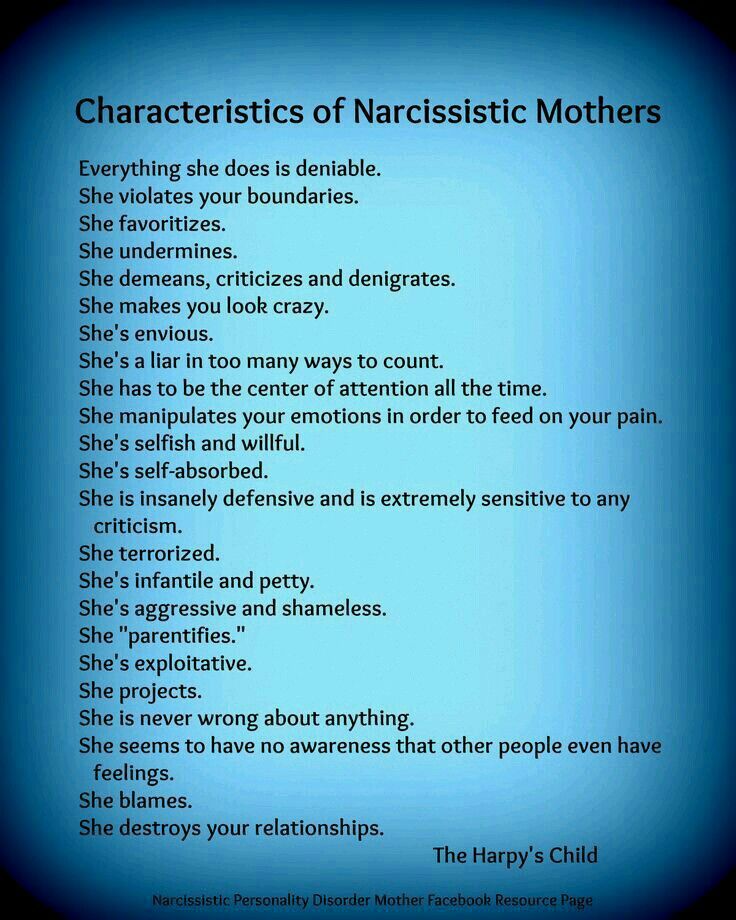 Jekyll and Mr. Hyde. At one moment he is very cute, but if you say or do something that he does not like ...
Jekyll and Mr. Hyde. At one moment he is very cute, but if you say or do something that he does not like ... Sharpness and roughness will be an immediate reaction. It's like you're walking on an eggshell, communicating with a narcissist - one wrong move, and that's it. Failure.
If you see these signs in your loved one, all you can do is leave. The sooner you do this, the better. A person who is in love only with himself will never change! Do not try to somehow influence this circumstance, all attempts will be in vain. nine0003
You will always be guilty of something, being around him, this person is able to completely trample on your self-esteem. Why do you need this if there are more worthy people around?
5 steps to end an unhealthy relationship
- Keep this person at a distance. If this is your partner, try not to communicate with him for a while. If this is a colleague or friend, communicate in extreme situations only if you really want to.

- Find out why such a person chose you. Why do you choose to be the victim? This is the only issue you need to deal with. For everything else, stop blaming yourself. The fact that you did not arrange a narcissistic person is not your fault. Get ready to learn the secret: no one will ever suit him! nine0103
- If you have drawn disappointing conclusions and you realize that you have been firmly connected with a narcissist, it is time to break this destructive connection. Pack up and leave very quickly. Do not be surprised: this person will not worry much or suffer for a long time, he will soon continue moving through life. He is incapable of becoming attached to anyone and can only love himself. Don't argue or explain anything - just leave.
- Increase your self-esteem and free yourself from the need to get the approval of other people. So you will protect yourself from meeting another narcissistic person who is drawn to assert themselves at the expense of those who are weaker.
